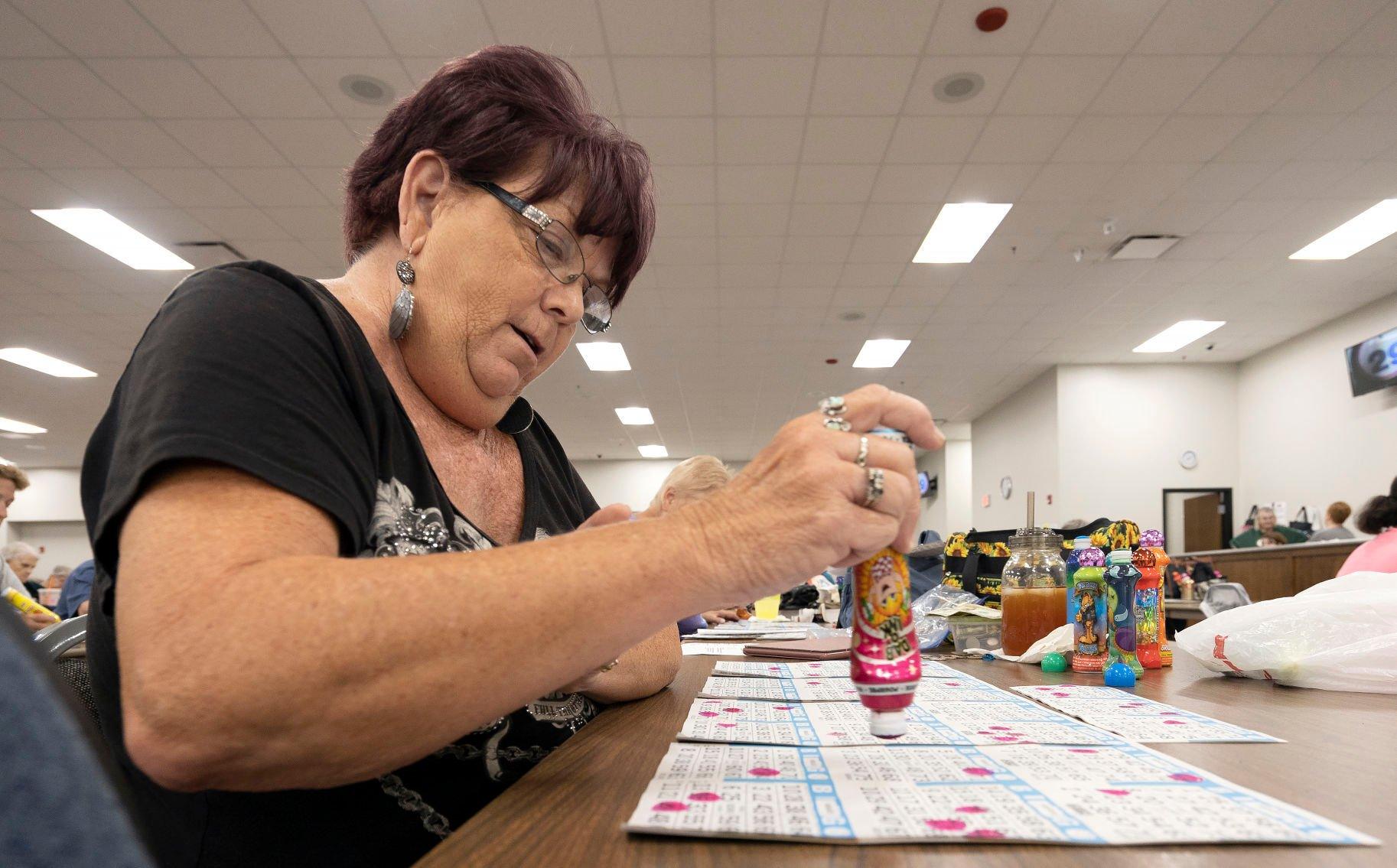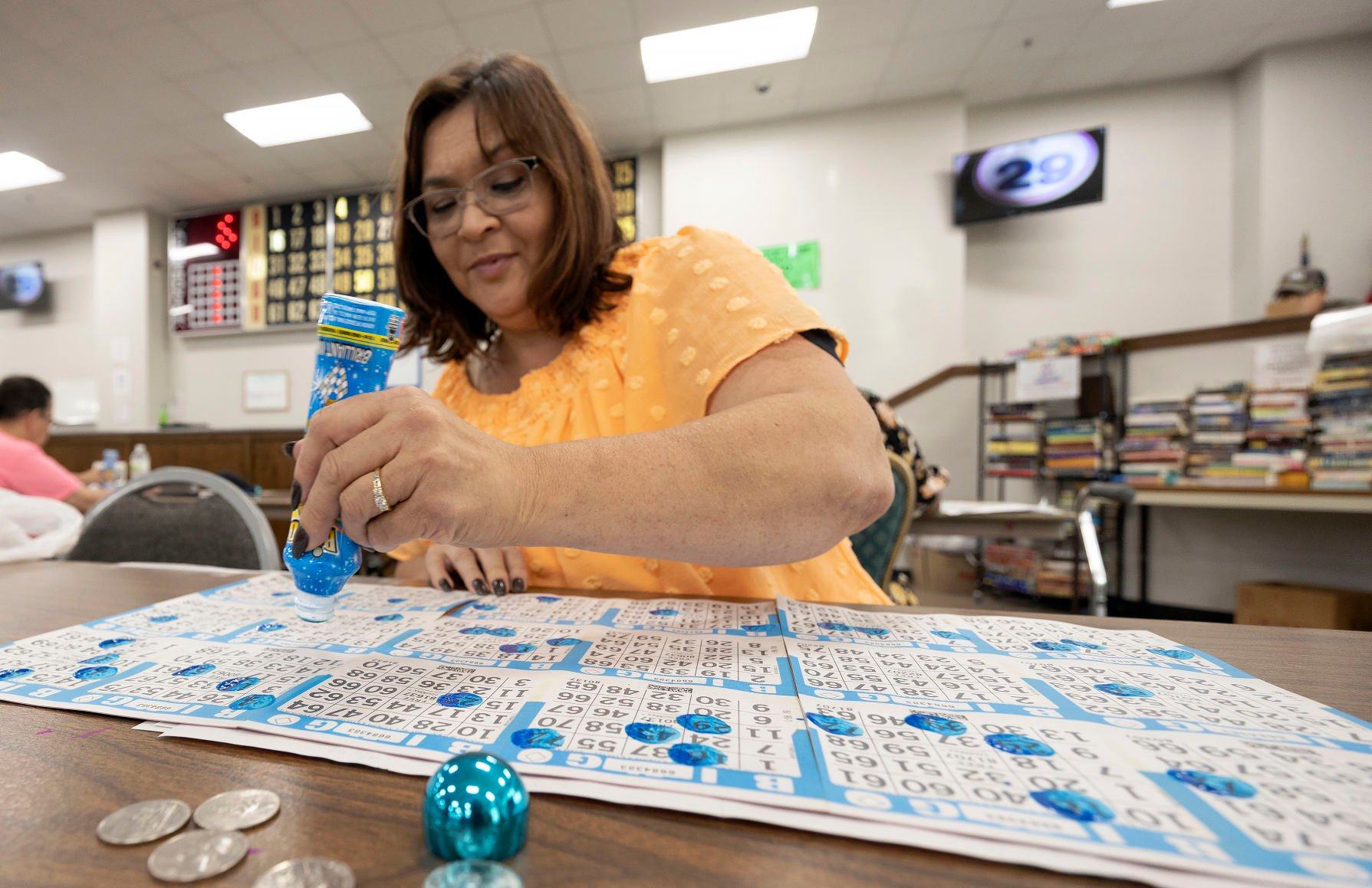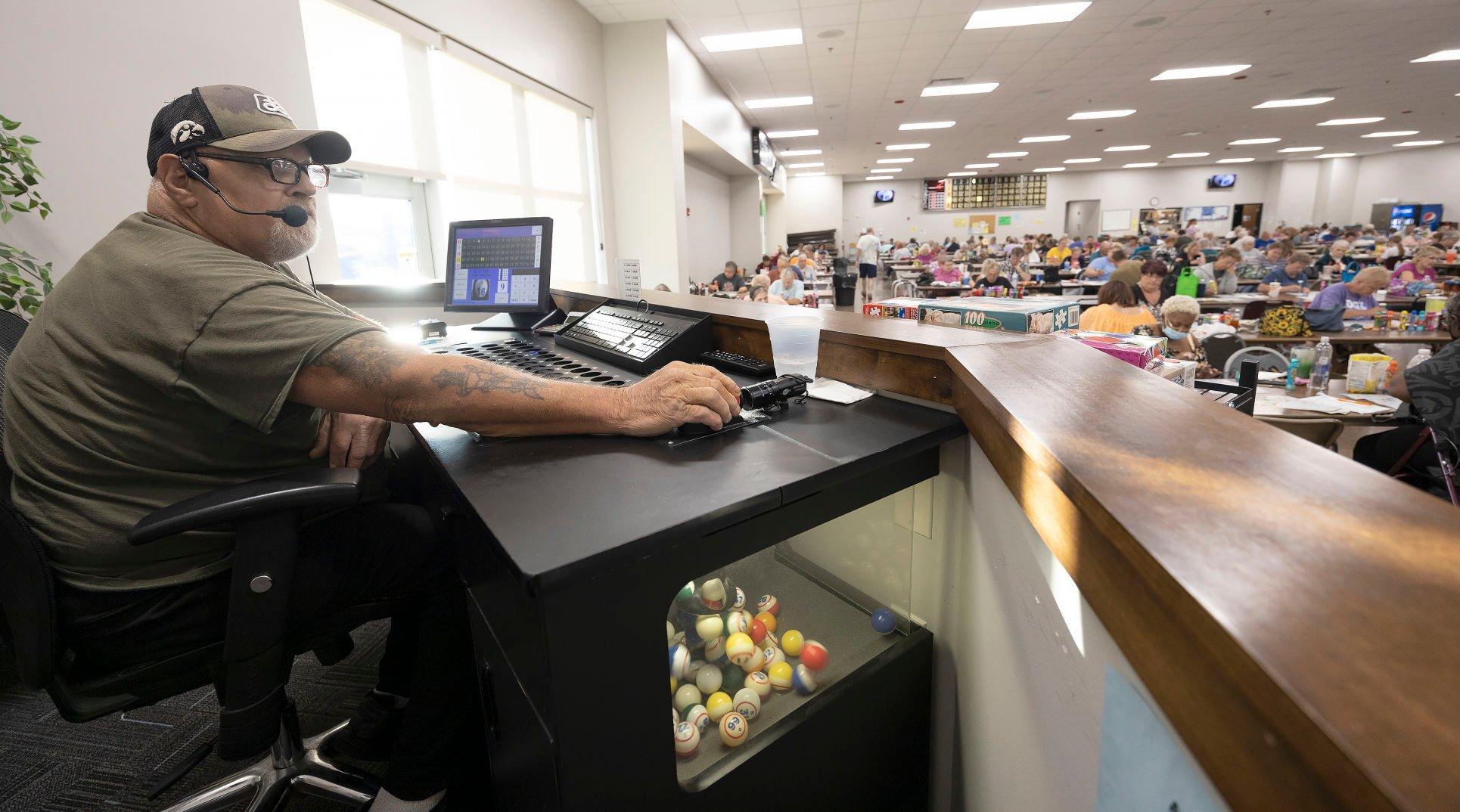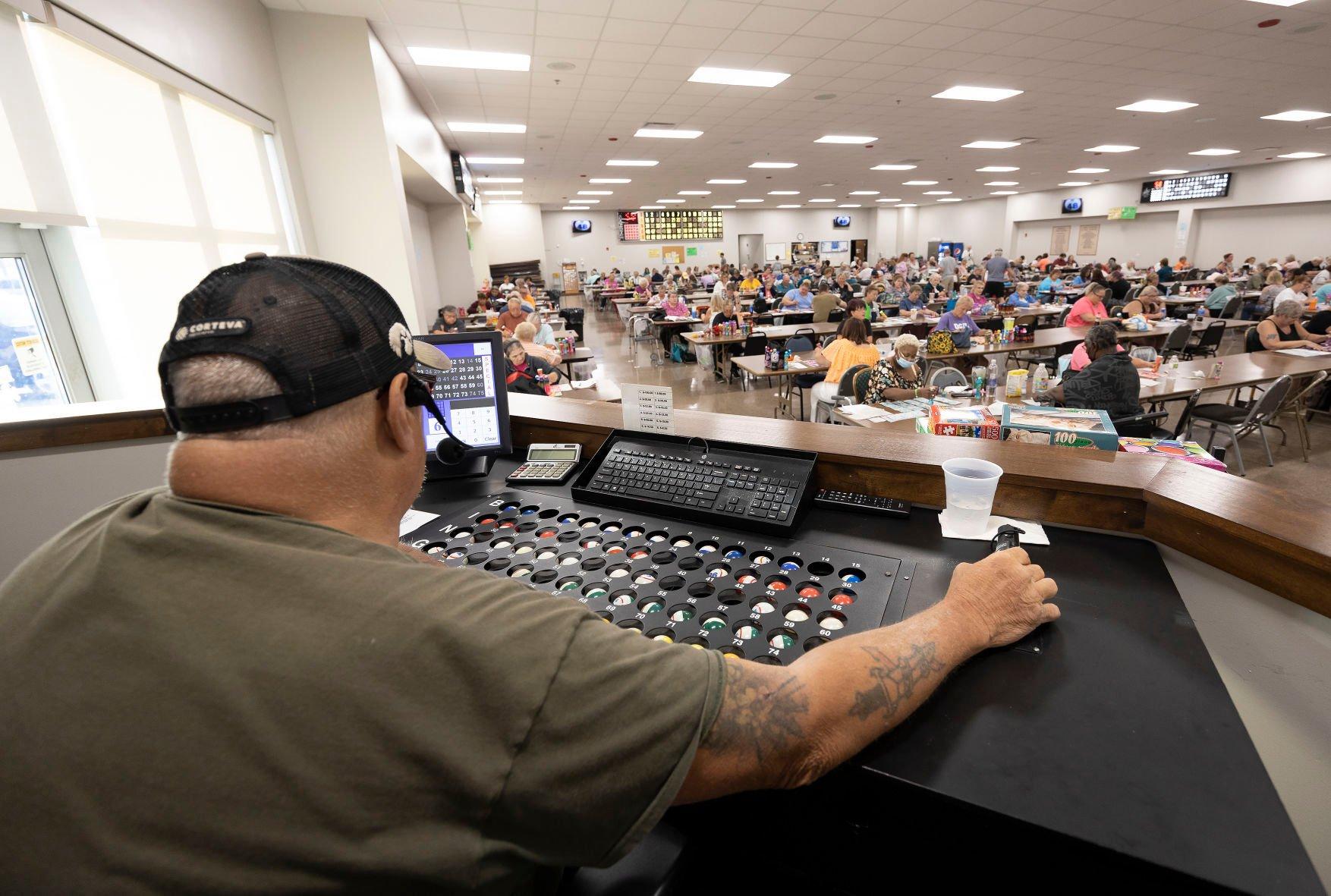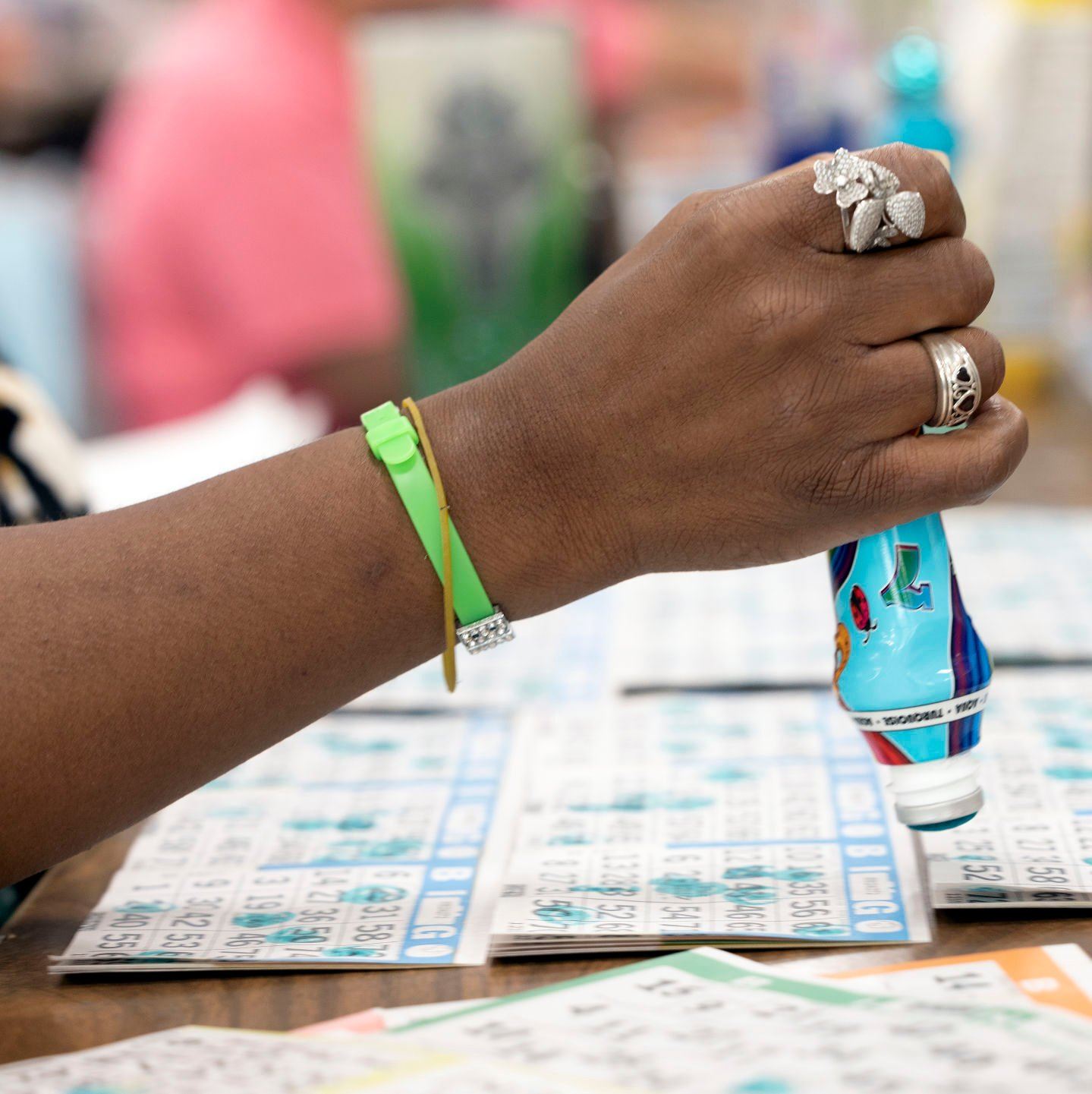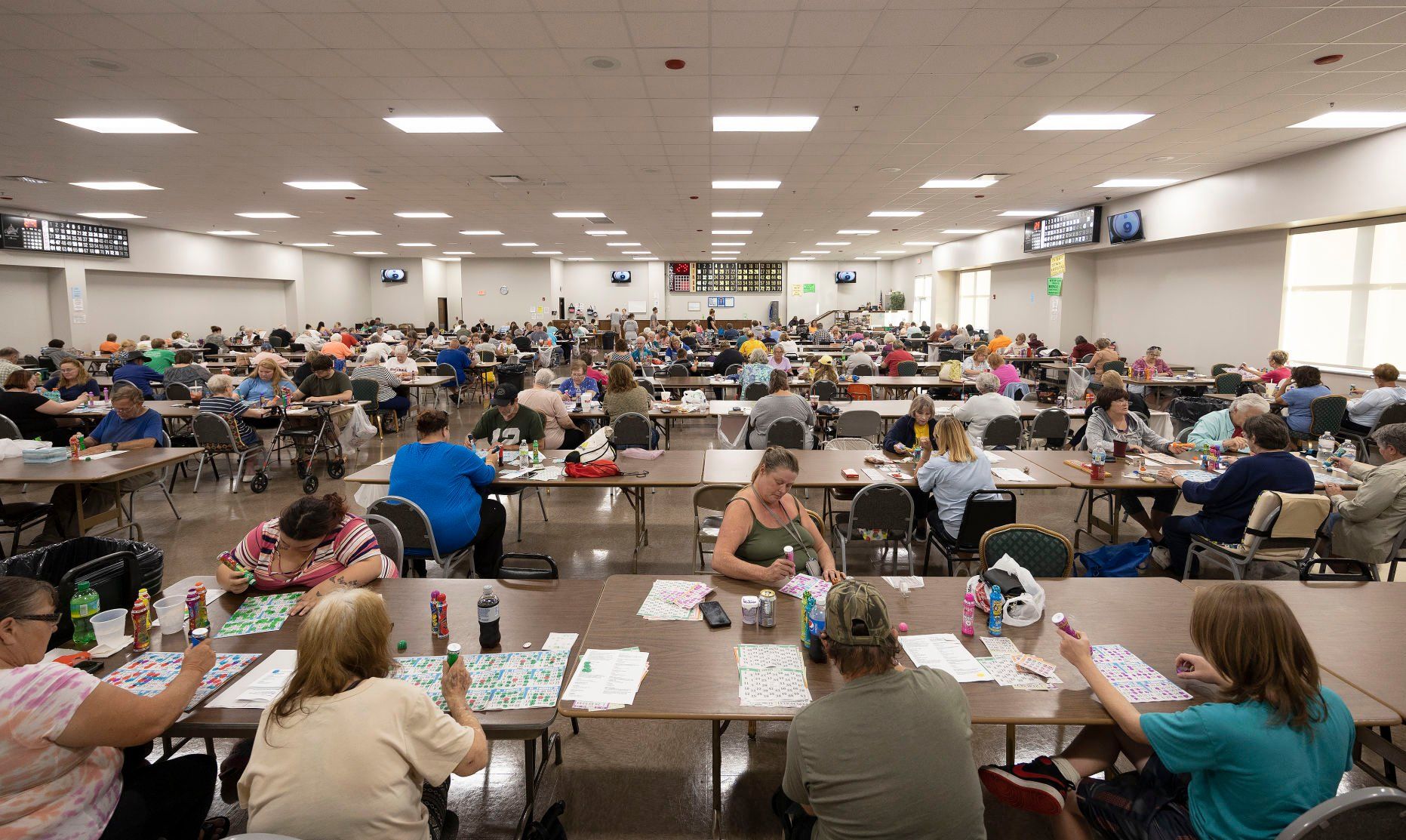In 1972, a group of tri-state-area residents noticed a gap in services for people with low vision or blindness.
“My dad wanted to get something going for people that were blind around this area,” said Debbie Gagne, current president of Tri-State Independent Blind Society. “Ten people put $10 in, and that’s how the organization started.”
Five decades, multiple locations and countless bingo cards later, the Dubuque organization is celebrating its 50th anniversary. The society offers a variety of services for blind people at its facility at 1068 Cedar Cross Road.
“Dad would be very proud because this organization was his life,” Debbie said of her father, Don Gagne, who died in 2020 at age 90. “It meant everything to him.”
Through the years
Don Gagne began losing his sight in his 40s as a result of a genetic disorder called retinitis pigmentosa. His sister Violet Haverland also has the disorder and was one of the founders of Tri-State Independent Blind Society alongside him.
“We wanted something here so the blind had half a chance,” Don Gagne said in a 2013 interview with the Telegraph Herald.
Haverland, now 89 and of Louisburg, Wis., has served on the society’s board since its earliest days and is currently its vice president.
She recalled how the society, seeking a way to raise money for programming, opened a used bookstore and launched bingo nights. The two fundraisers became staples of Tri-State Blind as it moved from a building on White Street to facilities on Ninth and Iowa streets, Jackson Street and Asbury Road.
“While we were in the building on Jackson, we marched in the Memorial Day parade a couple times … and we did (bingo) at DubuqueFest and (America’s) River Festival,” Haverland said.
In 2018, the organization opened its current facility on Cedar Cross Road, where it continues to operate a bookstore and hold thrice-weekly bingo nights.
“Without bingo and without the bookstore, we would not exist because we wouldn’t have the money to use to help people when they need help,” said Ron Herrig, of Dubuque, a longtime member of the society’s board.
Resources and support
In the 1980s, Haverland attended the American Council of the Blind’s annual conference, where she learned about other cities’ low-vision centers offering resources and medical services. Inspired by the event, she and other Tri-State Blind members launched a low-vision center and recruited local optometrists to volunteer in the clinic, which operated for many years.
Today, the society operates a low-vision store, which sells everything from braille playing cards and dice to big-button phones, sunglasses and talking clocks or scales.
On a recent morning, Mary Vargas, who has worked at Tri-State Blind since 2004, displayed some of the magnifying devices the store offers.
“When people come in, they tell me what their problems are with seeing, and I go from there,” she said. “A lot of times, they want to read, but their vision is so low they can’t read a book, so I help them with that.”
In an adjoining room, employee BreAnna Hansen staffed the bookstore, which sells donated books, puzzles and games.
The Dubuque resident also helps with Tri-State Blind programs, which include lessons in Braille and personal skills such as cooking.
Hansen and other staff members also visit clients’ homes for evaluations, assisting with tasks such as placing raised dots on the buttons of appliances so those with low vision can feel them.
“I think we give them that sense of independence back,” Hansen said. “When you become newly blind, it can feel like your life is over because we rely so heavily on our sight, but that’s not the case. Blind people can do so many of the same things that sighted people can do, and we get to show them that.”
A sense of community
Tri-State Blind members also partake in weekly group outings to local parks, plays or other forms of entertainment. Haverland enjoys these excursions, which allow her to socialize with others who also are blind and understand how they live.
“You don’t have to think it’s the end of the world because you have blindness, because there’s so much that you can learn and do,” she said. “A blind person can do a lot of things if they’re trained for it, and they can get trained easy enough if they want to.”
The society has faced obstacles in recent years as bingo participation declined, particularly during the COVID-19 pandemic.
Debbie Gagne said bingo nights prior to the pandemic could draw up to 200 visitors, but that count fell below 100 when social distancing requirements limited attendees. Numbers now have rebounded slightly, with 140 to 180 players marking their bingo cards each Wednesday, Friday and Saturday.
“When COVID hit, we really didn’t think we were going to make 50 (years),” Hansen said. “But what we’re doing is good work, and people want to see us succeed. It’s amazing to see it come this far.”


